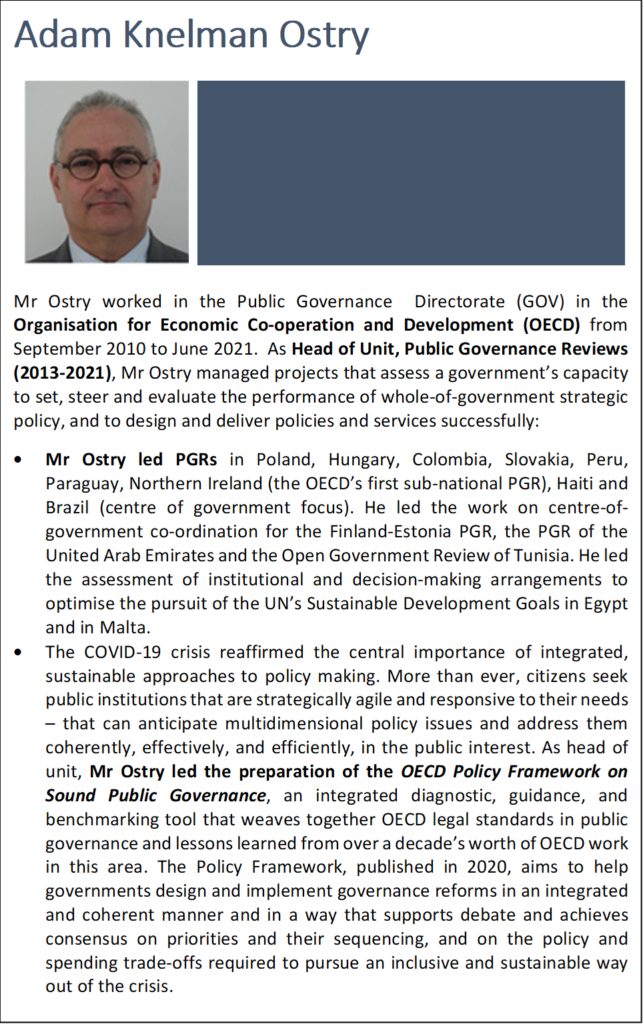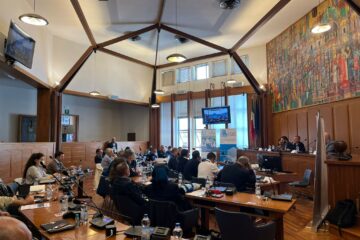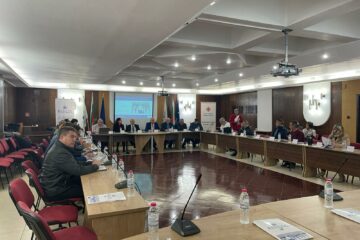Defining project-based POLICY RECOMMENDATIONS requires building bridges between scientific evidence and public policy, thus highlighting the utility of scientific findings for results-based policy making. Translating the fruit of research efforts into policy is about achieving impact in the public interest, as uni-dimensional, linear models that aim to link research to action tend to ignore multidimensional synergies that are crucial to driving and sustaining innovative, impactful public policy initiatives that can deliver lasting results for citizens and communities.
All projects of the Horizon 2020 DRS01 Cluster are committed to contributing policy recommendations to increase the impact of their resilience-focused EU science initiatives on the resilience of individuals and communities.

A tailored Workshop on POLICY RECOMMENDATIONS was offered to the DRS01 Cluster project teams at the Crises Managers Innovation Network CMINE to provide support in this shared challenge. The Workshop was lead by international expert Adam Knelman Ostry who helps governments & int institutions define and implement strategic policy frameworks & recommendations across the globe.

A facilitated joint brainstorming session focused on how best to embrace the challenge of defining policy recommendations in the specific context of our projects and engaged all invited project teams in focused dialogue.
The challenges identified by the DRS01 Cluster project teams included among others:
- Developing a clear strategy for key recommendations and outputs, engaging co-creation partners and target audiences
- Mainstreaming the recommendations to align with focus on risk awareness, social capital and preparedness for resilience
- Defining transformative recommendations, effectively bridging local, national and global policies through research generated, evidence-based input
- Supporting formal integration of technological innovations and related optimization measures into disaster risk reduction plans
- Formulating robust conclusions and recommendations focused on social capital in DRR
- Applying an iterative process of refining the findings and recommendations thereof.
The guidance shared during the workshop focused on a checklist of “building blocks” aimed at supporting the design and delivery of impactful policy recommendation that can deliver results for citizens and communities. These include key aspects of:
Problem identification
What exactly is the problem? For whom is it a problem? Is there a gap in public policy that has allowed the issue to arise? A specific market failure to be addressed? Is it a government’s job to address it?
Identifying all key potential stakeholders and building a consensus across all stakeholder groups on the essence of the “what” and the “why” of the policy challenge is a sine qua non baseline condition for designing and implementing policy action.
Basic building blocks include forging across all relevant stakeholder groups a common, consensus-based understanding of the concepts and vocabulary used to define the issues along with the roles and responsibilities of each stakeholder group that will be involved in developing a way forward. Are governments and the research community all speaking a common language?
Data gathering
Data needs to be gathered and independently validated; data and information then need to be translated into policy useful evidence.
Integration of lessons learned
Policy-useful evidence evokes prior experience – has this kind of issue surfaced before? What was done about it at the time? What worked, what did not, and why? How is this information being integrated into the policy development process now?
Strategic plan design
Clear, integrated multidimensional objectives are defined to strengthen the impact of a policy response through coherent, sequenced and prioritized implementation. Ex-Ante Regulatory impact assessment is used in support of the design and implementation of the strategy – will it work in practice? For whom – does it pursue the public interest effectively? Is it cost-effective? Does it achieve value for money?
Use of strategic foresight and horizon scanning can integrate emerging issues into strategic planning to address the current challenges at hand and can be used to prevent the adoption of short-term policy initiatives that, as they seek to address immediate political imperatives, can end up compromising medium and longer term efforts to achieve sustainability.
Identification of resources
Both human and financial – this requires flexible workforce planning and management practices, along with the effective assignment of financial resources to the tasks at hand.
Governance: institutional arrangements to engage stakeholders and citizens
Building (or harnessing existing) institutional and functional capacity to engage stakeholders within and outside government at all points in the policy-making cycle, bearing in mind the relationship between the local and national levels of government. Recommendation design needs to encompass multilevel governance and reflect on systems of engagement at all points along the policy-making cycle.
Testing the plans and recommendations
Is there buy-in from all relevant stakeholder groups and citizens?
Monitoring
Are all elements of the strategic plan being implemented on time and on budget?
Evaluation
Is the strategic plan achieving the strategic outcomes for citizens and communities that it was designed to achieve? If not, can performance evidence be used to adjust course? Are there effective feedback loops in place to ensure constant improvement in strategy design and delivery based on performance evidence?
Workshop conclusion
The research community needs to be able to speak to government in a language that integrates the vocabulary of public policy-making. The power of misunderstanding vs a common, consensus-based understanding of problems, concepts and policy approaches and roles across all stakeholder groups in the research community and within local and national governments.
Open government principles should be deployed in support of engaging citizens and non-governmental organizations, engaged from the start of the policy making cycle across all of its stages.



0 Comments